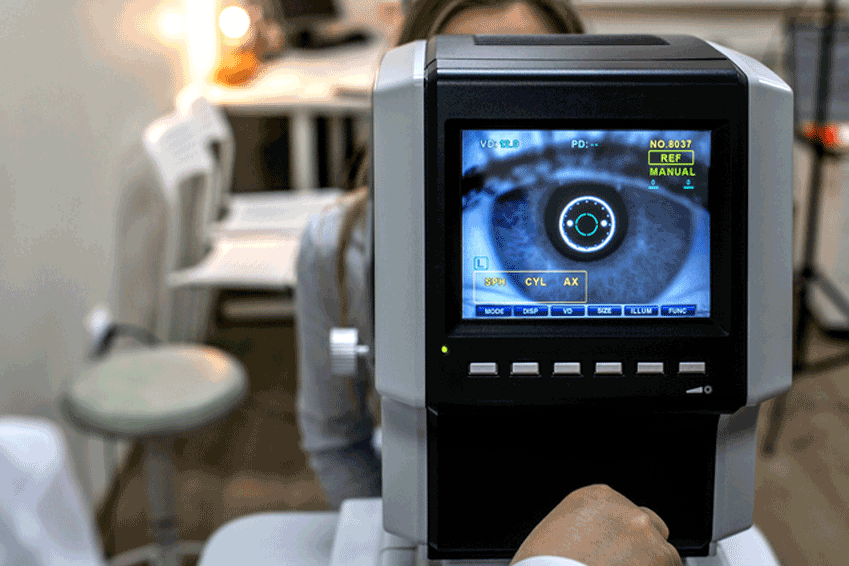Macular degeneration is a progressive eye disease that causes vision loss. You can’t cure it, but you may be able to control it.
The American Macular Degeneration Foundation estimates that 10 million people suffer from this condition, which, over time, can lead to partial blindness.
As of yet, the medical establishment has not produced a cure for the disease. Research has proven, however, that early diagnosis, treatment, as well as lifestyle changes, can improve the prognosis of individuals who either currently have or are prone to develop macular degeneration.
So what is macular degeneration?
When we see, light is projected through the lense of the eye and onto the retina. Images captured by the retina are sent to the brain via the optic nerve. The retina’s central area, known as the macula, relays a large portion of that captured light. Without a healthy macula, we essentially could not accomplish much of our daily activities, such as reading and driving.
Macular degeneration is a condition that compromises the macula, making it increasingly difficult over time to discern the central portion of images projected on the retina.
Macular degeneration is categorized as either “dry” (much more prevalent) or “wet” (more serious and harder to treat). Though sight does deteriorate over time, the majority of people with macular degeneration do not completely lose their sight, since a percentage of peripheral vision is often preserved.
Who gets macular degeneration?
Generally, older individuals are more likely to develop the condition, which is why it is generally referred to as AMD (advanced age macular degeneration). Caucasian individuals are also more likely to develop AMD – and if a family member has it, your risk also increases. Smoking is a proven risk factor, as well.
Atherosclerosis and high blood pressure could make someone more inclined to develop the condition. The environment also plays a role, such as exposure to ultraviolet radiation from the sun or other source.
What you can do about AMD?
The thought of being diagnosed with macular degeneration is frightening, but you can likely delay onset and slow the progression with some simple lifestyle changes.
GET CHECKED FOR IT. For sure, not knowing whether you have AMD is perilous for your eyesight. Given that symptoms are not noticeable in the early stages, it is likely only an eye doctor could spot it.
First and foremost, schedule eye exams on a regular basis. If your eye doctor suspects AMD, additional tests can be scheduled with a retina specialist, either in the same practice or outside. Knowing that you have AMD will set more aggressive preventive measures in motion.
QUIT SMOKING. When you smoke, your chances of developing AMD can be two to four times higher. So very simply, if you want to lower your risk for macular degeneration, do not smoke.
REGULAR EXERCISE has been proven to mitigate progression of AMD, so engage in enjoyable activities that keep your body moving.
CHANGE YOUR DIET to include foods that have been shown to protect you from this condition. Include those that are high in vitamin C. Oranges juice is a good supplier. Beware, though, grapefruit interacts negatively with certain drugs you may be taking, such as some hypertension medications, and statins – do the research or ask your doctor.
Cut your risk for the condition by up to 40% by eating foods that contain lutein and zeaxanthin – eggs, broccoli, collard greens, kale, spinach, and turnip greens. Eat more carrots, fish and beans, pumpkin seeds, and whole grains for beneficial zinc.
VITAMINS can help, when you don’t eat right, to fill the gaps for some of these helpful food ingredients, such as lutein and zeaxanthin. Your eye care professional will probably recommend a vitamin formula, available over-the-counter, that has been clinically proven to reduce the severity of macular degeneration (AREDS 2 study).
SUNLIGHT PROTECTION is vital. Limiting your time in the sun, and wearing a good pair of sunglasses with amber-colored lenses protects your eyes from damaging ultraviolet rays.
GET TRIMMER. Obesity is loosely associated with increased probability for developing AMD. To be safe, if you are overweight, lose the extra pounds and keep them off. Avoid caffeinated foods, foods that contain sugar, and red meat. All of these can affect blood flow and improve overall health of the eyes.
EXERCISE THOSE EYES. It has been shown that certain eye exercises can help improve vision around spots in the eye that have been impaired by macular degeneration.

The takeaway on AMD
It is never pleasant to learn you have macular degeneration, or that it runs in your family, but taking precautions and doing what has been proven to work is a must if you are to maximally protect your vision for a lifetime.
We all know people who claim they haven’t seen an eye doctor in years – don’t be one of them. See your eye care professional soon! For more information on AMD, visit this site.




